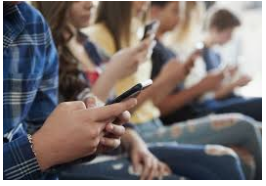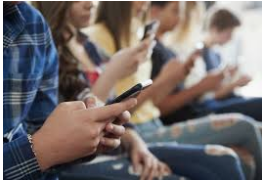The news about COVID-19 that is circulating on social media whether it is fake or not is making people that are seeing it feels worrying. Also, reading fake news during quarantine making it worse. So, one way to ease that is simply disconnected from Facebook and Twitter and other social media site.

This suggestion was offered by a health specialist to the millions of people who are now under an enhanced community quarantine.
According to Dr. Rolando Balburias, avoiding distress will make your spirits uplift and boost immune systems against COVID-19.

Dr. Rolando Balburias, MD, is a senior medical consultant and Functional Medicine practitioner at LifeScience Center for Health and Wellness. He always makes it a point to remind his patients that they play an active role when it comes to their health
He said, most cases of anxiety from COVID-19 is because of “overexposure to news about the disease from traditional and social media, where fake news abounds and spreads quicker than the virus that causes the disease”.
Balburias said that “some adjustments are immediately doable like disconnecting from social media or actively seeking relaxation through prayers or meditation”.
He said, “To relax our minds, we can pray or learn meditation exercises”.
“If we have too much stimulation from negative news, the primitive part of our brain gets activated and steers us away from the pre-frontal cortex that allows us to make calm rational decisions.”
He gave some examples of adaptogens such as different types of tea like camomile, turmeric or ginger, passionflower and other herbal concoctions that have calming effects. These are for some people that taking “adaptogens” to soothe their nerves.
Balburias also said that “You can also eat leafy green vegetables to calm you down, or eat food rich in minerals like magnesium and zinc”.
He explained that reading fake news on social media is causing panic and stimulate the amygdala. Amygdala is the almond-shaped gray matter inside each of the brain’s hemispheres that are involved in emotions.
He said that when the amygdala is stimulated “too much,” there is a tendency to “base decisions on fear and it affects the rational decision-making of a person. Also, it affects our sleeping patterns. Sleep and anxiety are connected.
What can you say about this? Share your thoughts in the discussion box below.







